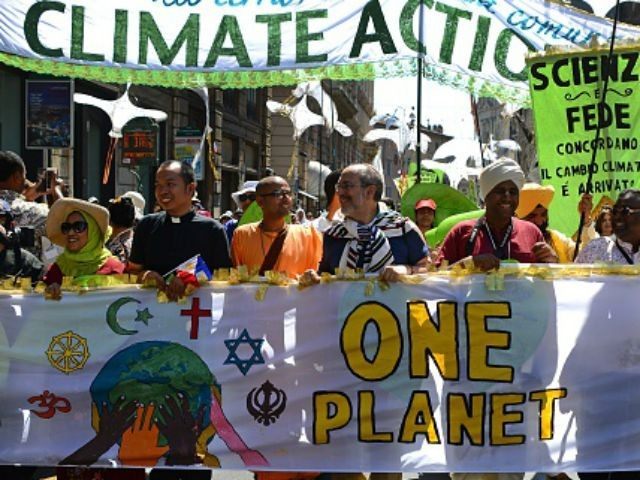President Trump’s latest moves on the Paris agreement are – depending on your point of view – either a masterstroke of realpolitik by a consummate dealmaker or a shameful fudge: he has decided to kick the can down the road by leaving the decision up to the Senate.
This isn’t, of course, what he promised on the campaign trail.
In May last year in North Dakota he was quite explicit:
We’re going to cancel the Paris Climate Agreement and stop all payments of U.S. tax dollars to UN global warming programs.
What he probably wasn’t banking on, though, when he made that commitment was that it wouldn’t just be the liberals and greenies he’d be battling – but also a significant chunk of his own administration.
Though his EPA chief Scott Pruitt and his advisor Steve Bannon were all for pulling out, everyone else in his inner circle – not just the inevitable Jared Kushner and Ivanka, but also Secretary of State Rex Tillerson and even Energy Secretary Rick Perry – were keen to stay in.
The compromise – declare the agreement a treaty then send it to the senate to be killed – was in the event, probably the best skeptics could have hoped for.
It’s not ideal: the UN climate agreement is anti-capitalist, un-American and based on the flimsiest of science. Nixing it straight would have been the equivalent of that MOAB attack on ISIS in Afghanistan: a demonstration of strength, commitment and clarity of purpose.
On the other hand, it was devised by some people on the right side of the argument – members of Trump’s not-remotely-tofu-eating EPA transition team. According to the Washington Times:
At an initial meeting of top staffers Tuesday, several memos and letters that were circulated laid out the options, including the treaty proposal put forth by Christopher C. Horner and Marlo Lewis Jr., senior fellows at the Competitive Enterprise Institute.
Under their vision, Mr. Trump could toss out Mr. Obama’s decision that the Paris accord was an executive agreement, declare it a treaty and send it to the Senate, where it would need a two-thirds vote for ratification.
If this is the kind of manoeuver that is necessary to frustrate the various greenie-corporatist-Democrat factions in the White House, then so be it.
The important thing is that, one way or another, the Paris climate agreement – or “treaty” as we must now learn to call it – is, as far as the U.S. is concerned, a dead duck.

COMMENTS
Please let us know if you're having issues with commenting.